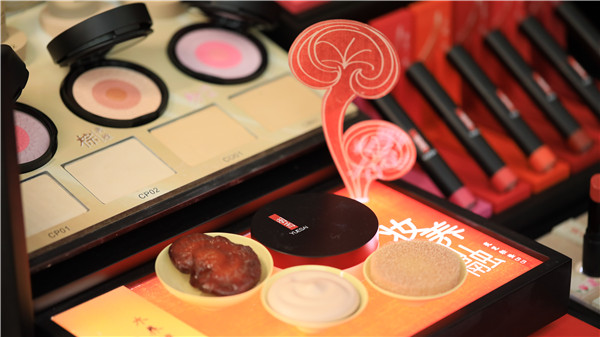 |
|
Chinese skincare brands are seeking to rejuvenate themselves by appealing to younger shoppers, with a heavy focus on putting traditional Chinese medicine in their manufacture. [Photo by Nan Shan and Wang Jingsheng/For China Daily]
|
Like Pechoin, other Chinese brands are seeking to rejuvenate themselves by appealing to younger shoppers. What all these products have in common, too, is that they lean heavily on traditional Chinese medicine in their manufacture. Often, rather than this being a strong selling point, it seems to have deterred many prospective buyers, particularly the young, but this is beginning to change.
Typical of such shoppers is Zhang Xuan, who says she has used many different skin care products over the years. Nothing seemed to soothe her dry skin, she says, until she recently stumbled on a cosmetics brand that relies on TCM, and she is convinced that her search for relief is finally over.
"I think it is healthier and suits my skin better," says the Shanghai school teacher, who is in her 20s. "I'd like to try other TCM-based skin care, too."
Cosmetics based on TCM are still a small minority at the cosmetic counters of department stores, but they have gained momentum in the past few years as both sellers and buyers discover how potent they can be. Those who have given them any attention have tended to be older shoppers, but now younger people like Zhang are voicing their appreciation about their efficacy and value for money.
The award in 2015 of the Nobel Prize in Physiology or Medicine to the Chinese pharmaceutic chemist Tu Youyou, together with William Campbell and Satoshi Omura, gave TCM a higher profile and may have helped increase sales of TCM products, including cosmetics.
Chinese indigenous brands like the one Zhang is now using, Herborist, have begun to attract more attention and sell better as they not only using TCM as a strong selling point but also remain relatively cheap.
China's cosmetics market was estimated to be worth 205 billion yuan ($29.8 billion) in 2015 and is forecast to be worth 361 billion yuan in 2020, making China one of the fastest growing markets for cosmetics, the market research firm Ibaogao says.


























 Raymond Zhou:
Raymond Zhou: Pauline D Loh:
Pauline D Loh: Hot Pot
Hot Pot Eco China
Eco China China Dream
China Dream China Face
China Face






